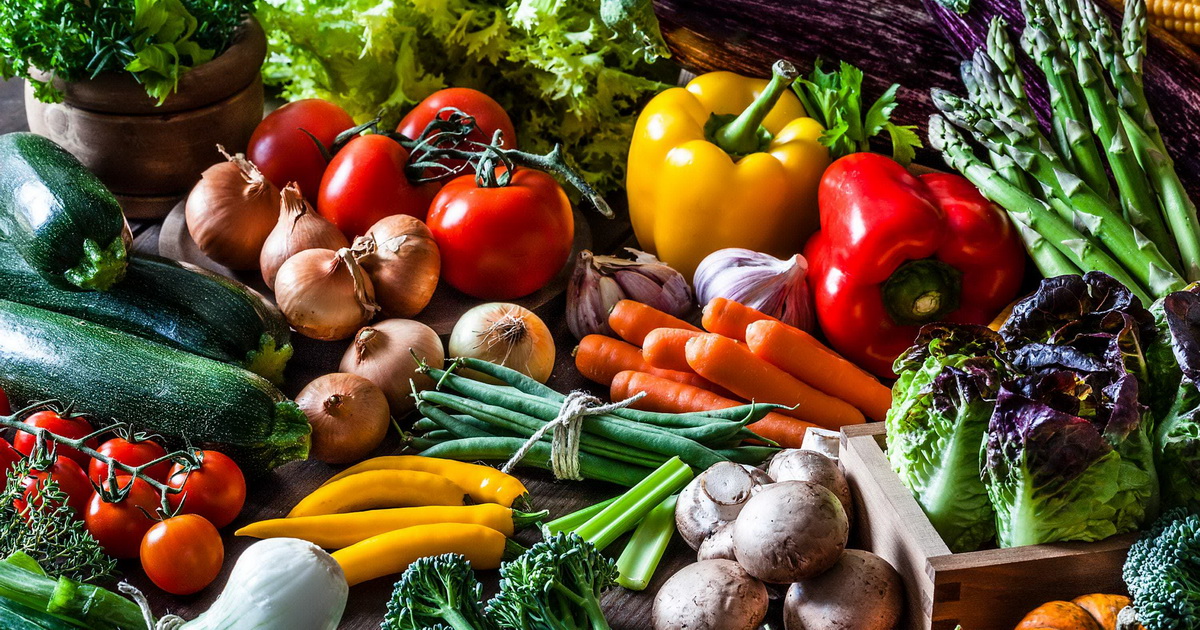- 8 August 2024
- 312
The Benefits of Organic Food

In a world where food choices impact health and the environment, the popularity of organic food continues to rise. Organic food refers to produce and ingredients that are grown without synthetic pesticides, fertilizers, or modified organisms. The of organic food extend beyond just personal health to encompass environmental sustainability, animal welfare, and taste. Let’s explore the numerous advantages of consuming organic food and how it can contribute to a healthier lifestyle.
1. Nutrient-Rich and Healthier:
Organic food is known for its nutrient-rich qualities, having higher levels of essential vitamins, minerals, and antioxidants compared to conventionally grown food. With organic farming practices that prioritize soil health and biodiversity, organic produce offers a more wholesome and nutrient-dense option for consumers. By choosing organic food, individuals can enhance their diet with natural, unadulterated nutrients that support overall health and well-being.
2. Reduced Exposure to Pesticides:
Conventional farming often involves the use of synthetic pesticides and herbicides to protect crops from pests and diseases. However, these chemicals can leave residues on fruits, vegetables, and grains, potentially posing health risks to consumers. Organic food, on the other hand, is produced without synthetic pesticides, reducing exposure to harmful chemicals and promoting a safer food supply. Opting for organic food can help minimize pesticide intake and support a healthier lifestyle.
3. Environmental Sustainability:
Organic farming practices prioritize environmental sustainability by utilizing methods that promote soil health, water conservation, and biodiversity. Organic farmers avoid synthetic chemicals and pesticides that can harm ecosystems, pollute water sources, and degrade soil quality. By choosing organic food, consumers support sustainable agriculture practices that protect natural resources, reduce carbon footprint, and contribute to a healthier planet for future generations.
4. Support for Animal Welfare:
Organic food production extends its benefits to animal welfare by adhering to ethical and humane treatment practices. Organic livestock are raised in environments that prioritize animal welfare, providing access to open spaces, natural diets, and the absence of antibiotics or growth hormones. By consuming organic meat, dairy, and eggs, consumers support humane farming practices that respect animal well-being and align with principles of compassion and sustainability.

5. Enhanced Flavor and Taste:
Organic food is often celebrated for its superior flavor, freshness, and taste compared to conventionally grown products. With a focus on natural growing methods, organic produce and ingredients retain their inherent flavors and aromas, delivering a more vibrant and authentic taste experience. The absence of synthetic additives and preservatives in organic food allows the natural flavors to shine, providing consumers with a culinary experience that is both delicious and wholesome.
6. Avoidance of GMOs:
Genetically modified organisms (GMOs) are a controversial subject in the food industry, with concerns surrounding their impact on health, biodiversity, and ecosystems. Organic food is non-GMO, meaning it is produced without genetic engineering or modification, providing consumers with a GMO-free alternative. By choosing organic food, individuals can avoid GMOs and opt for products that are grown naturally, preserving genetic diversity and promoting sustainable agricultural practices.
7. Lower Environmental Impact:
Organic farming practices have a lower environmental impact compared to conventional agriculture, as they strive to minimize chemical inputs, conserve water resources, and protect biodiversity. By eschewing synthetic fertilizers, pesticides, and herbicides, organic farming reduces pollution, soil erosion, and greenhouse gas emissions that contribute to environmental degradation. Supporting organic food production can help mitigate climate change, preserve natural habitats, and promote sustainable land use practices.
8. Allergen Reduction:
Organic food may offer benefits for individuals with food allergies or sensitivities, as it is less likely to contain artificial additives, preservatives, or allergens commonly found in processed foods. Organic food production standards prohibit the use of certain artificial colors, flavors, and additives that can trigger allergic reactions in sensitive individuals. Choosing organic food can provide a safer and allergen-reduced option for those with food sensitivities, promoting better health outcomes and dietary choices.
9. Sustainable Farming Practices:
Organic food is cultivated using sustainable farming practices that prioritize soil health, water conservation, and ecological harmony. Organic farmers employ techniques such as crop rotation, composting, and natural pest management to maintain healthy soil, support biodiversity, and promote ecosystem resilience. By supporting organic food production, consumers contribute to sustainable agriculture practices that protect the environment, preserve natural resources, and foster a balanced relationship between food production and nature.

10. Empowerment of Local Farmers:
Choosing organic food supports local farmers and producers who adhere to organic farming standards and sustainable practices. By purchasing organic products from local sources, consumers empower farmers, strengthen local economies, and promote agricultural diversity. Supporting local organic agriculture contributes to community resilience, food security, and food sovereignty, fostering a closer connection between consumers and producers and promoting a more sustainable and equitable food system.
Conclusion:
The benefits of organic food extend far beyond individual health, encompassing environmental sustainability, animal welfare, and social responsibility. By opting for organic produce, meat, dairy, and processed goods, consumers can enjoy nutrient-rich, flavorful, and ethically produced food that supports a healthier lifestyle and a healthier planet. From reduced pesticide exposure to enhanced flavor, environmental conservation, and support for sustainable farming practices, organic food offers a multitude of advantages that contribute to a more conscious and mindful approach to food consumption and agricultural production.

